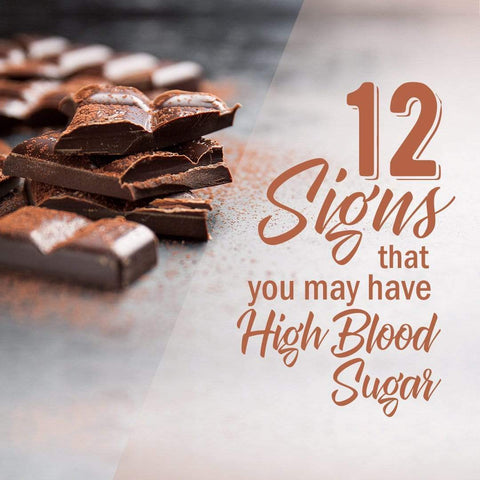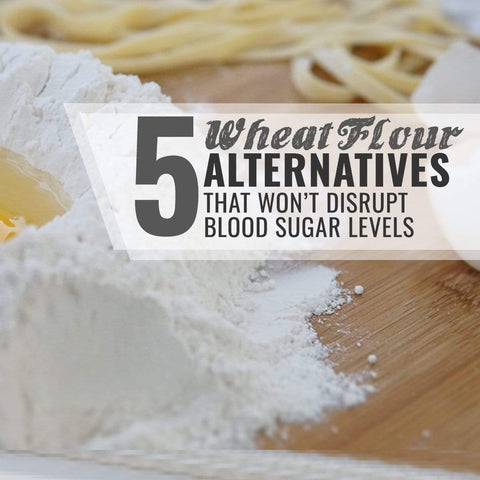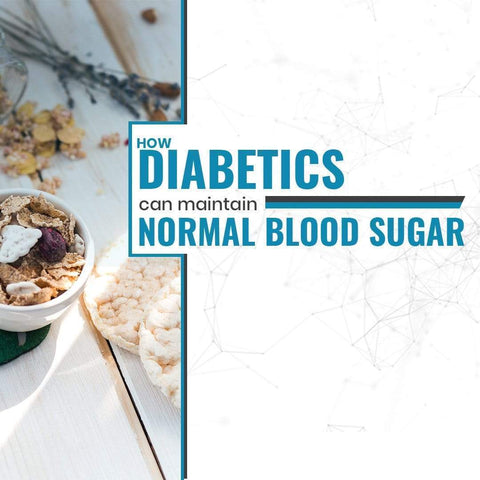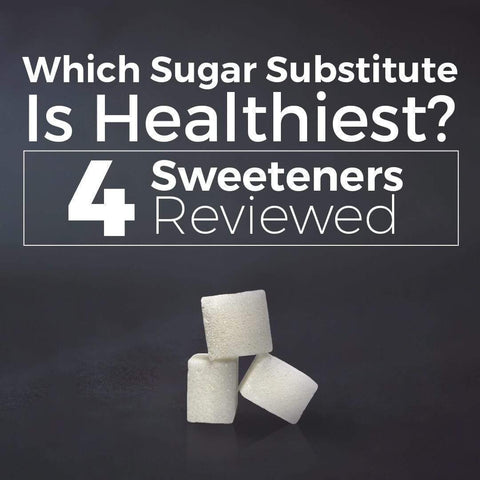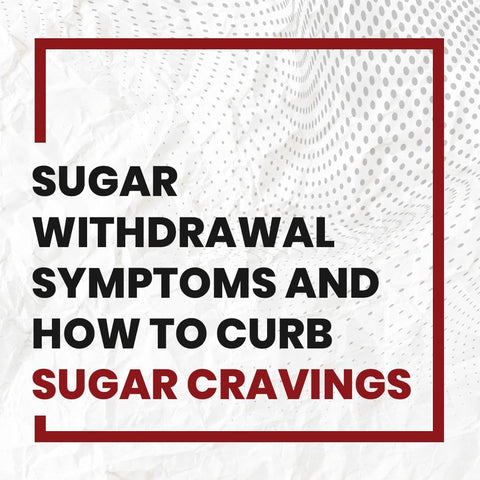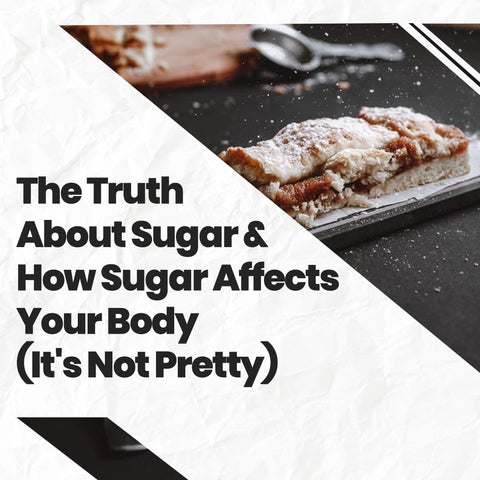
There are so many ways to maintain healthy blood sugar levels. Practicing the right lifestyle habits, eating right, and taking supplements can put your blood sugar levels into the healthy “normal” range.
That’s right! You have a lot of power over your blood sugar levels!
After all, you don’t want high blood sugar levels, do you? Of course you don’t!
But first lets back the truck up a little....
What Does Having High Blood Sugar Even Mean?

Sugar is taken out of your blood and put into your cells for use by the hormone insulin. High blood sugar develops in most people because they become insulin resistant.
Insulin resistance means that your insulin has been elevated for so long that your cells lose sensitivity to its effect on them. It’s similar to not noticing background noise after you’ve been around it for so long.
Typically, the constant overeating of unnatural sugary foods and lack of exercise keeps your blood sugar consistently elevated and your body has to pump out tons of insulin to take the sugar out of your blood. But after a while, your cells are much less receptive to that insulin, and it can no longer deliver it into your cells, leaving you with high blood sugar.
Signs That You Have High Blood Sugar
High blood sugar can cause a wide variety of effects on your body. If you have high blood sugar at the moment or have had it chronically, you may notice:
- Frequent headaches
- Fatigue
- Excessive thirst
- Excessive urination
- Difficulty concentrating
- Blurred vision
- Excessive hunger
- Being overweight or obese
- Lots of skin wrinkles
- Itching skin
- Erectile dysfunction
Exclusive Bonus! Download the FREE report ‘19 Ways to Naturally Balance your Blood Sugar Levels (Even If You LOVE Carbs)’ by clicking here.
What Is “Normal Blood Sugar”?
In this day and age, we can measure our blood sugar level by a blood test or a simple prick on your finger.
When you get the test results back, you should look to see if your blood sugar is within the normal ranges, which are:
- Less than 100 mg/dL if you are fasting (haven’t eaten for 8 hours)
- Less than 140 mg/dL if you’re measuring two hours after a meal
Why Is High Blood Sugar Bad?
High blood sugar is very damaging to the body. There are a TON of different ways sugar exerts its nasty effects on you. People with type II diabetes know this all too well because of the plethora of side effects they experience from high blood sugar, such as nerve pain and damage, kidney problems, and damage to blood vessels.
Why does sugar wreak such havoc? It causes a cascade of damaging processes in your body: inflammation, oxidative stress, and glycation.
Because of these damaging processes, high blood sugar can play a role in the development of degenerative diseases and accelerate aging 1. Sugar damages cells and proteins throughout your body! It can even make your skin wrinkled. (Sugar damages collagen.) 2.
But despair not! You can get your blood sugar back into a healthy range. Here are some great tips on how to do just that.
How to Balance Out Your Blood Sugar
1. Move Your Body

Exercise triggers your cells to burn sugar 3. If you get enough movement, there’s much less of a chance that excess sugar will be floating around in your blood. Instead, it will be delivered into your cells and used effectively.
Exercise is quite effective at lowering high blood sugar levels. Researchers warn that excessive amounts of exercise can lower blood sugar so much that it might cause problems for people who have low blood sugar 3! This would be an extreme amount of exercise, however.
2. Eat Only “Whole” Foods
By eating whole foods found in nature, you will help to balance your blood sugar levels.
Vegetables, fruits, nuts, seeds, beans, and even whole grains help keep your blood sugar within a healthy range. These foods contain plenty of fiber and antioxidants, both of which slow down the release of their natural sugars into your bloodstream so that your blood sugar stays lower 4.
Foods like pizza, white rice, white bread, pastries, pasta, and bagels are NOT whole foods. They are processed, meaning that they’ve had their fiber removed.
3. Eat Beans Or Nuts With Your Carbs
Combining the right foods can keep your blood sugar within a lower range and prevent it from spiking high after meals.
Researchers have found that eating almonds with bread substantially lowers the blood sugar spike from the bread 5. And several clinical trials have shown that combining (or any source of protein) beans with starch such as rice, “significantly” lowers the blood sugar spike from starch alone 6,7.
The fiber and antioxidants in nuts and beans help keep your blood sugar lower and delay sugar absorption in your intestines.
4. Take Bitter Melon

This herb Bitter Melon, taken as a supplement, can balance blood sugar by activating an enzyme called AMPK 8.
This enzyme triggers your cells to burn fat and sugar at a faster rate. When we eat too much or don’t exercise, AMPK activity goes down and we don’t burn sugar quickly enough. Bitter melon is here to help!
5. Take Alpha Lipoic Acid
This supplement is famous for regenerating the antioxidants in your body and helping your cells produce more energy.
It can lower blood sugar and insulin† 9. In one study, fasting blood glucose was “significantly” reduced in people who took alpha lipoic acid 9.
Alpha lipoic acid, by virtue of its powerful antioxidant effects might even protect the nerves in your body from damage ( a side effect of high blood sugar) 10.
6. Relax More

Stress can increase your blood sugar levels. Your body releases hormones such as cortisol when you are stressed, and these hormones increase your blood sugar 11. Work-related stress has been specifically correlated with higher blood sugar levels 12.
There’s evidence that meditation and other stress-reducing techniques can lower blood sugar levels 13.
7. Take Carnosine
Carnosine is an amino acid dipeptide found naturally in meats. But if you take it as a supplement, you’ll be getting larger amounts than you naturally would just eating a slice of beef.
Carnosine supplementation has been shown to balance blood sugar and insulin levels, both after meal spikes and fasting blood sugar levels 14,15.
8. Add Olive Oil to a Meal

Healthy fats found in plants don’t raise your blood sugar, so they are a valuable source of non-sugar calories. Your body needs healthy fats like those in nuts, seeds, avocados and olives to build membranes in your cells, including your brain cells, so don’t be afraid of them.
Researchers have found that adding olive oil to meals can blunt the glucose spike that occurs from eating carbs 16. Fat might help slow down the processing of sugars in your meal, and we know that the antioxidants in olives (and other plant foods) could help balance your blood sugar.
You now have some super effective tools to get your blood sugar into the healthy range!
Do you have high blood sugar but LOVE carbs?
Want to do something about it without giving up all the foods you love?
You can help balance blood sugar levels within the normal range naturally using a variety of safe, effective natural remedies.
Click here to download the brand new FREE report by nutritionist, Evan Burns, which shows you how you can still enjoy many of your favorite foods – including carbs – without causing your blood sugar to spike!




